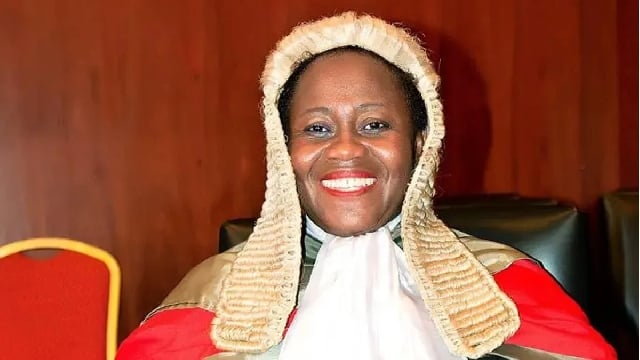The Ghana Bar Association (GBA) has vehemently contested President John Dramani Mahama’s suspension of Chief Justice Gertrude Torkornoo, branding the action as unconstitutional and a violation of Article 296 of the 1992 Constitution. This article mandates the publication of regulations guiding the exercise of discretionary powers. The GBA’s National Executive Council, during its mid-year conference, unanimously resolved to challenge the suspension in court if the President fails to rescind his decision. The association argues that the absence of such published regulations renders the President’s action legally unsound, creating a dangerous precedent for future executive overreach. This stance underscores the GBA’s commitment to upholding the rule of law and safeguarding constitutional provisions against arbitrary exercise of power. They are seeking judicial interpretation to establish clear legal boundaries for discretionary powers, thereby preventing potential future abuses.
The core of the GBA’s argument rests on the principle of procedural fairness and adherence to constitutional guidelines. Article 296 explicitly requires regulations to be in place before discretionary powers are exercised. The association contends that the absence of these regulations essentially strips the President’s action of legal validity. By challenging the suspension, the GBA aims to solidify the importance of published guidelines for discretionary powers, emphasizing their role in protecting against arbitrary decisions and ensuring accountability within the executive branch. This proactive stance aims to reinforce the principle that all actions, even those constitutionally permissible, must follow established legal procedures. They believe that failing to challenge this suspension could set a dangerous precedent, weakening constitutional safeguards and potentially normalizing the unchecked use of executive power.
In direct contradiction to the GBA’s stance, Deputy Attorney General Justice Srem Sai defended the President’s action, asserting its legality and dismissing the GBA’s threat of legal action. During an appearance on Joy FM’s Newsnite, Dr. Sai expressed confidence in the government’s position and questioned whether the GBA would ultimately pursue the matter in court. He argued that the lack of published Constitutional Instruments (CIs) does not negate the President’s constitutional authority. This contrasting perspective highlights the fundamental disagreement over the interpretation of Article 296 and the necessary preconditions for exercising discretionary powers. The government’s position suggests a broader interpretation of executive authority, while the GBA insists on a stricter adherence to procedural requirements.
Dr. Sai further elaborated on the government’s perspective, arguing that the absence of published CIs, while procedurally desirable, does not invalidate the President’s inherent powers granted by the Constitution. He maintained that the President’s ability to act in accordance with the Constitution is not contingent upon the prior publication of CIs related to discretionary powers. This argument underscores the government’s view that the President’s authority stems directly from the Constitution and is not solely dependent on supplementary regulations. The government’s interpretation emphasizes the substantive power granted to the President, while the GBA stresses the procedural requirements for exercising that power. This fundamental difference in legal interpretation is at the crux of the dispute and will likely form the basis of any future legal challenge.
The clash between the GBA and the government underscores a crucial debate on the balance of powers and the importance of procedural safeguards within a constitutional democracy. The GBA’s insistence on adherence to Article 296 highlights the need for transparency and accountability in the exercise of executive power. The President’s suspension of the Chief Justice, without the supporting framework of published regulations, raises concerns about potential abuse of authority. By challenging this action, the GBA seeks to reaffirm the principle that discretionary powers are not absolute and must be exercised within a clearly defined legal framework. This safeguards against arbitrary decisions and ensures that the exercise of such powers is subject to judicial review.
The potential legal battle between the GBA and the government promises to be a significant test case for Ghanaian constitutional law. The outcome will determine the extent to which the President’s discretionary powers are subject to regulatory oversight and will clarify the interpretation of Article 296. The case will also set a precedent for future exercises of executive power and could have a lasting impact on the balance of powers in Ghana. Ultimately, the court’s decision will define the relationship between constitutional provisions and the necessity of implementing regulations for discretionary powers. This will clarify the legal landscape surrounding executive actions and provide a clearer understanding of the limits and safeguards required for maintaining a just and balanced constitutional framework.














